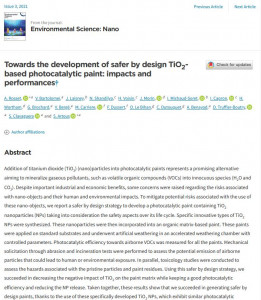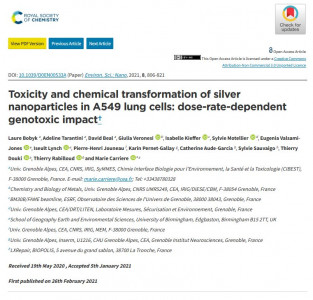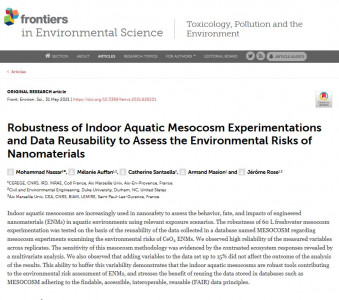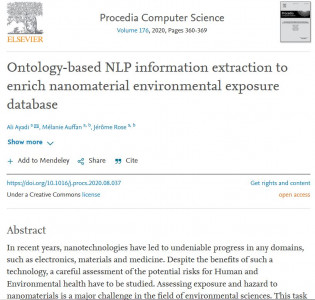A new article by Dorier et al. in Nanotoxicology "Continuous in vitro exposure of intestinal epithelial cells to E171 food additive causes oxidative stress, inducing oxidation of DNA bases but no endoplasmic reticulum stress"
Abstract
The whitening and opacifying properties of titanium dioxide (TiO2) are commonly exploited when it is used as a food additive (E171). However, the safety of this additive can be questioned as TiO2nanoparticles (TiO2-NPs) have been classed at potentially toxic. This study aimed to shed some light on the mechanisms behind the potential toxicity of E171 on epithelial intestinal cells, using two in vitromodels: (i) a monoculture of differentiated Caco-2 cells and (ii) a coculture of Caco-2 with HT29-MTX mucus-secreting cells. Cells were exposed to E171 and two different types of TiO2-NPs, either acutely (6–48 h) or repeatedly (three times a week for 3 weeks). Our results confirm that E171 damaged these cells, and that the main mechanism of toxicity was oxidation effects. Responses of the two models to E171 were similar, with a moderate, but significant, accumulation of reactive oxygen species, and concomitant downregulation of the expression of the antioxidant enzymes catalase, superoxide dismutase and glutathione reductase. Oxidative damage to DNA was detected in exposed cells, proving that E171 effectively induces oxidative stress; however, no endoplasmic reticulum stress was detected. E171 effects were less intense after acute exposure compared to repeated exposure, which correlated with higher Ti accumulation. The effects were also more intense in cells exposed to E171 than in cells exposed to TiO2-NPs. Taken together, these data show that E171 induces only moderate toxicity in epithelial intestinal cells, via oxidation.









